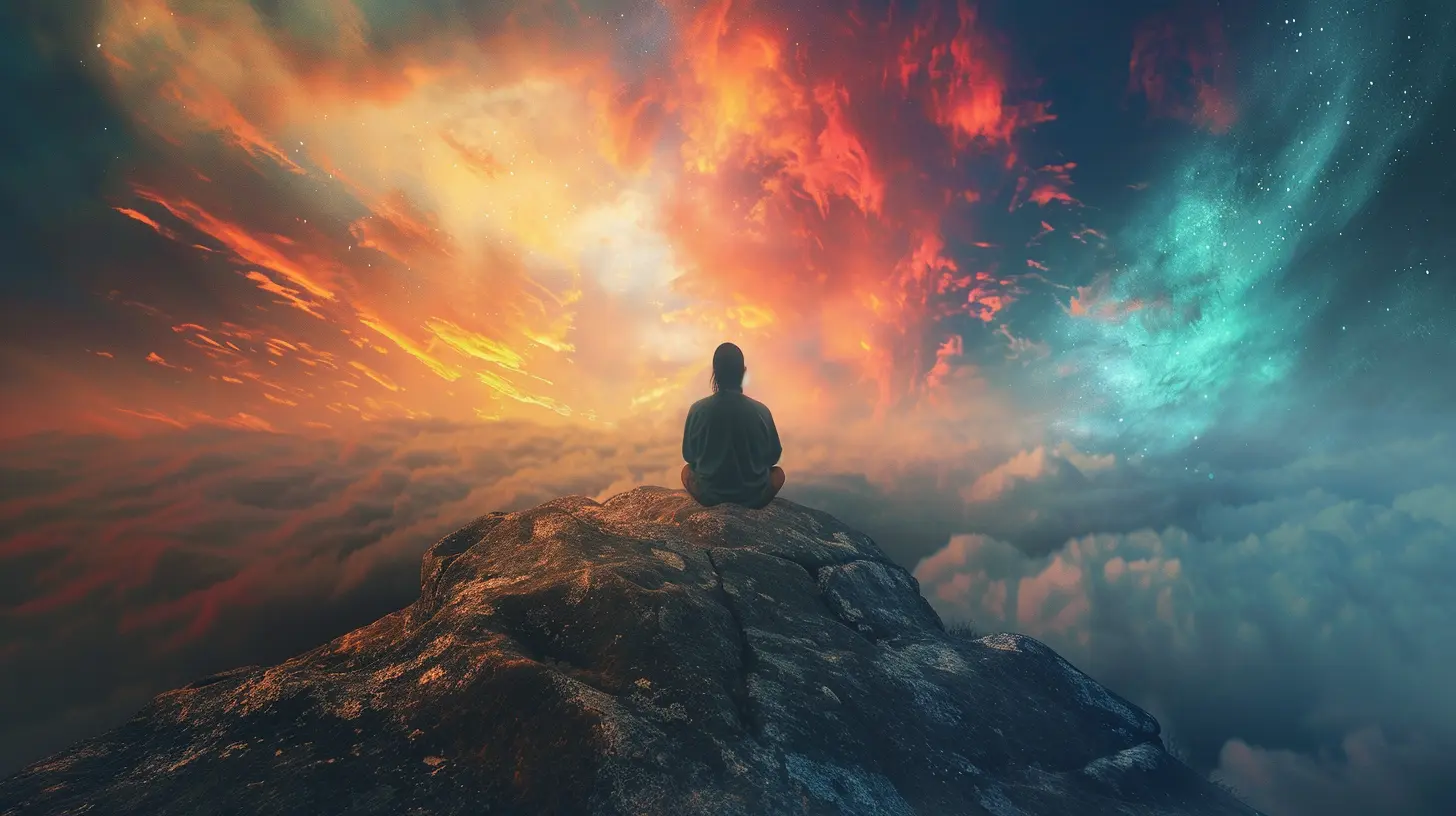Digital Detox: Reclaiming Your Mind from Constant Connectivity
20 June 2025
Have you ever felt like the world is moving faster than your brain can keep up? Like your phone buzzes more often than your heart beats? That gnawing sense of being “always on”—checking emails at dinner, doom-scrolling before bed, replying to DMs before your feet hit the floor in the morning?
Yeah... That constant connectivity is stealing more than just your time.
Welcome to the age of digital burnout, where being offline feels almost rebellious. But what if I told you the way back to clarity, peace, and yourself starts with one simple concept: the digital detox?
Let’s peel back the layers of this mysterious but powerful mental reset, and figure out how to take back what’s rightfully yours—your mind.
The Invisible Chains of Constant Connectivity
We’re tethered. Like invisible chains wrapped around our thoughts, smartphones and screens have become extensions of our hands. We’re checking notifications like our lives depend on it—but do they?Think about it: How many times have you unlocked your phone intending to check the weather, only to end up on Instagram 30 minutes later? Or decided to quickly reply to a text, and three hours later you're deep in a YouTube rabbit hole watching how to build a cabin with a butter knife?
That’s not just distraction—it’s designed dependency.
The Dopamine Trap
Every ping, like, comment, and notification gives your brain a hit of dopamine, the feel-good chemical. It’s the same mechanism slot machines use. Yep. Social media is the new Vegas.But here’s the kicker...
That short burst of pleasure is fleeting. Over time, your brain gets greedy. You need more frequent hits to feel the same “high.” And just like any other addiction, it becomes harder to quit.
What Is a Digital Detox, Really?
No, it’s not about smashing your phone or moving to a cabin in the woods (though hey, no judgment if that’s your vibe).A digital detox is simply a conscious break from digital devices—phones, computers, tablets, smartwatches, even smart TVs—to help you reconnect with your surroundings, your thoughts, and your people.
It’s not about ditching the digital world forever. It’s about giving your mind the breathing room it desperately needs.
Why Your Brain Craves It
Imagine your brain like a sponge—soaking up every bit of info, every notification, every image. But even a sponge gets saturated. Eventually, you can’t absorb anything new unless you squeeze some of it out.A digital detox is that squeeze. It allows the mind to wring out stress, anxiety, mental clutter, and start fresh.
The Hidden Cost of Being Always Online
We often glamorize hustle culture and being “on” 24/7. But let’s get brutally honest for a sec.1. Mental Fog and Reduced Focus
Ever struggle to remember why you entered a room, or what you just read five seconds ago? That’s not just age—that’s digital overload.2. Anxiety and Comparison Paralysis
Social media paints picture-perfect lives—filtered, polished, curated. Constant exposure can trigger anxiety, inadequacy, and a warped sense of reality.3. Poor Sleep Quality
Blue light, doom-scrolling, and night-time emails wreak havoc on your circadian rhythm, making quality sleep feel like a luxury.4. Weakened Relationships
When was the last time you had a deep conversation without glancing at your phone? Digital distractions water down our connections, replacing real intimacy with emoji-filled exchanges.
The Science Backs It Up
Let’s sprinkle in some science, shall we?Studies conducted by the University of Pennsylvania and California State University highlight the connection between high screen time and increased rates of depression and anxiety, especially in teens and young adults.
In contrast, people who took even short digital detoxes (as little as 3 days) reported:
- Better sleep quality
- Increased productivity
- Improved mood
- More mindfulness and present awareness
Less screen time doesn’t mean less life—it often means more of it.
Signs You Might Need a Digital Detox (Spoiler: You Probably Do)
Still not sure if you need one? Let’s tick off a quick checklist. If you say “yes” to 5 or more, it might be time to unplug... fast.- You feel anxious when your phone is not within arm’s reach.
- You check your phone first thing in the morning (even before brushing your teeth).
- You scroll endlessly even when you're bored or tired.
- You feel pressure to post or respond quickly all the time.
- You experience FOMO when you’re offline too long.
- You frequently lose track of time while on social media.
- You struggle to focus without checking your device.
- You feel “burned out” for no clear reason.
How to Start Your Digital Detox (Without Losing Your Mind)
Okay, okay. You get it. But how do you actually detox without feeling like a caveperson?Here’s the thing: A digital detox doesn’t have to be all or nothing. It’s about progress, not perfection.
1. Set Clear Intentions
Ask yourself: What do I want to gain from this detox? More time? Better sleep? Mental clarity?Write it down. When things get tough (and they will), revisit your “why.”
2. Start Small
Don’t go full cold-turkey on day one. Instead, try:- Tech-free mornings for the first hour after waking
- No screens during meals
- A weekly “phone-free day” (yes, Sundays count)
- Turning off non-essential notifications
It adds up. You’ll start to feel the shift.
3. Create Tech-Free Zones
Designate certain areas in your home as screen-free—like the bedroom, kitchen, or dining table. Let those spaces breathe again.4. Replace, Don’t Just Remove
It’s easier to disconnect when you connect with something else. Fill the void with:- Reading real books (those paper things—remember them?)
- Journaling your thoughts
- Taking walks without your phone
- Practicing yoga or meditation
- Having real face-to-face convos
5. Use Tech to Fight Tech (Irony Alert)
Leverage apps like:- Forest (grow a digital tree when you stay off your phone)
- Offtime (limits app usage)
- Digital Wellbeing (Android) or Screen Time (iPhone) to track and reduce usage
What Happens When You Detox? (Spoiler: Magic)
The first couple of days might feel weird. You’ll reach for your phone subconsciously. You might feel a little FOMO itch.But then something wild happens...
Your thoughts slow down.
Your anxiety drops.
Your sleep deepens.
Your focus sharpens.
Your creativity? Reawakens.
It’s like your brain steps out of the foggy swamp and into the sunlight.
Real Talk: This Isn’t About Hating Technology
Let’s not pretend digital = bad. Technology gives us access, connection, opportunity. It’s how we use it that makes the difference.A digital detox isn’t an anti-tech movement. It’s a pro-you movement. It’s about balance. Boundaries. Breathing space.
You’re not lazy for needing a break. You’re human.
Reconnect with What Matters
We spend hours scrolling through the highlight reels of others’ lives—but how often do we pause to curate our own real moments?Time spent offline is time spent living—laughing with friends, making art, cooking a messy meal, dancing like no one’s recording.
Because here’s the truth: The world doesn’t end when your phone dies. But your peace of mind might if you never switch off.
Your 7-Day Digital Detox Challenge
Wanna give this a try? Here’s a simple one-week challenge to ease you in:Day 1: Turn off all unnecessary app notifications.
Day 2: No phone for the first and last hour of your day.
Day 3: Eat all meals tech-free.
Day 4: Have a conversation without glancing at your phone.
Day 5: Take a 30-minute walk—phone stays home.
Day 6: Replace 1 hour of screen time with a hobby.
Day 7: Completely unplug for the entire day. (Yes, you can!)
One week. That’s it. But the afterglow? Could last a lifetime.
Final Thoughts: This Is Your Mind On Freedom
The digital world isn’t going anywhere. Let’s be real—it’s incredible, powerful, and often necessary.But you? You’re more than a user. You’re a thinker, a dreamer, a human being who deserves to breathe deeply and live fully.
Unplug so you can recharge.
Disconnect so you can reconnect—mind, body, soul.
Reclaim your mind. The real world is waiting.
all images in this post were generated using AI tools
Category:
Mental WellnessAuthor:

Angelo McGillivray
Discussion
rate this article
2 comments
Velma Flores
In our hyper-connected world, a digital detox can significantly improve mental clarity and reduce stress. Taking breaks from screens allows for deeper connections with ourselves and others, ultimately fostering a healthier, more balanced lifestyle.
June 23, 2025 at 2:59 AM

Angelo McGillivray
Absolutely! A digital detox provides essential space for mental clarity, strengthens our connections, and promotes a more balanced life. It’s a vital step toward reclaiming our well-being in today’s fast-paced world.
Rivenheart Reese
This article effectively highlights the psychological and emotional benefits of a digital detox. By emphasizing the importance of disconnecting from constant connectivity, it encourages readers to prioritize mental health, reduce anxiety, and foster meaningful real-world interactions. A timely reminder of the need for balance in our tech-driven lives.
June 21, 2025 at 3:39 AM

Angelo McGillivray
Thank you for your insightful comment! I’m glad you found the article's focus on mental health and meaningful connections valuable. Balancing our tech use is indeed essential for overall well-being.


